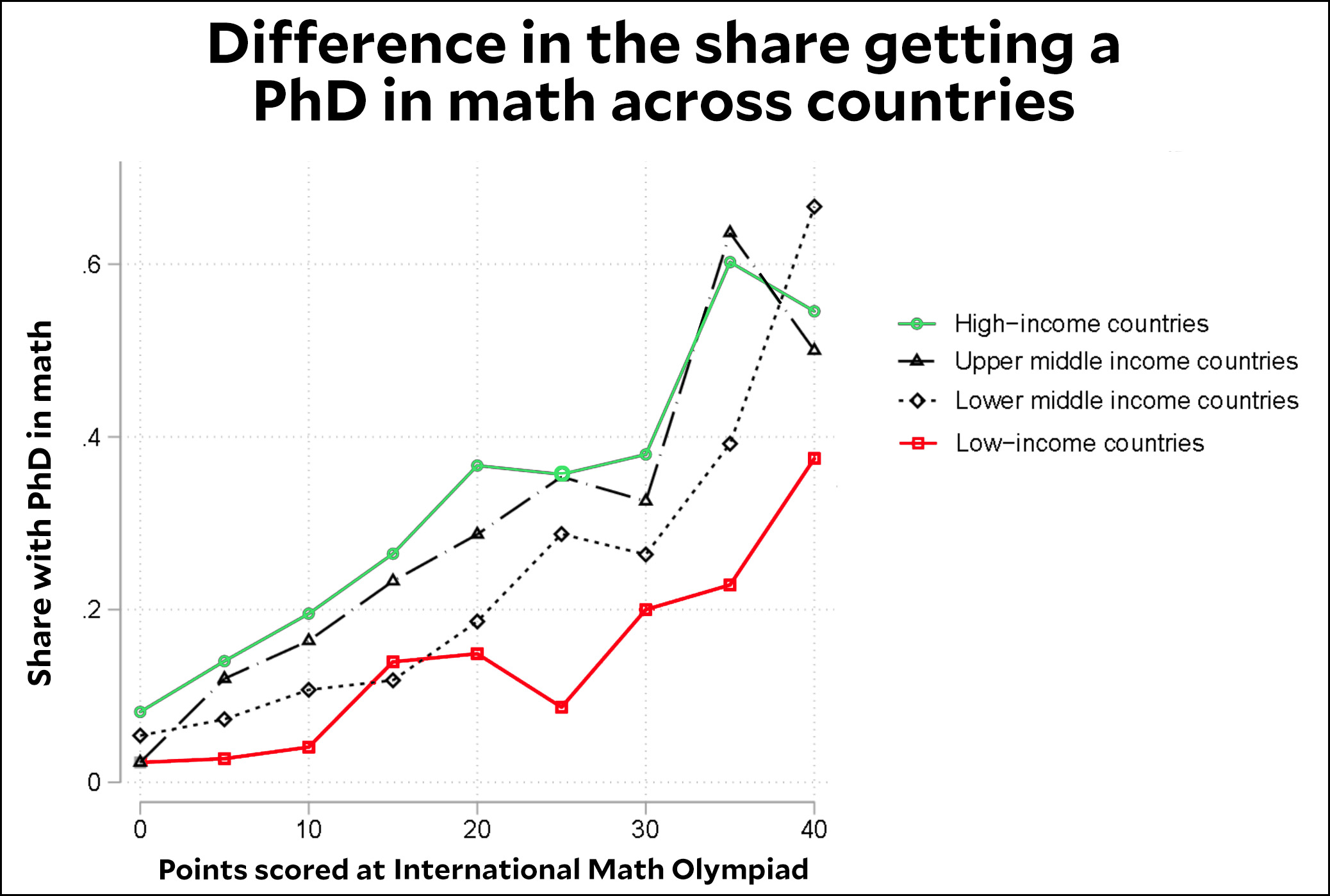If you’re an NFL-caliber football player, there’s a pretty good chance you’re going to end up playing in the NFL no matter where you come from. But what if you’re an Olympic-caliber mathematician? There are such things, and you can identify them every year at the math combine International Mathematics Olympiad for late teenagers. So what happens to them?
Via Alex Tabarrok, Ruchir Agarwal and Patrick Gaulé gathered together a dataset to figure this out. Of the partipants competing between 1981-2000, about 8 percent won gold medals, 16 percent won silver medals, and 24 percent won bronze medals. Unsurprisingly, these medalists mostly go on to earn PhDs in mathematics, and they tend to be more productive than their fellow PhDs who didn’t win medals. Bottom line: these are really super smart math folks.
But there’s always a but, isn’t there? It turns out that although rich countries are pretty good at shepherding these young geniuses into top PhD programs, poor countries aren’t:

Agarwal and Gaulé draw the following conclusion:
Our results suggest that the quantity of lost knowledge production arising from cross-country differences in the productivity of IMO participants is sizeable, and that this lost knowledge production is not easily replaceable by that of other mathematicians….It may be a loss to mathematics if individuals who are in the extreme right tail of ability (some of whom are IMO participants and some of whom are not) drop out of mathematics.
….The lost knowledge production arising from the under-utilization of developing-country talent is more palatable (or perhaps even desirable) if talent from developing countries is used to produce other types of knowledge. We have shown that while developing country IMO participants are slightly more likely to do a PhD in a discipline other than mathematics, this far from offsets the difference observed in getting a mathematics PhD. We cannot rule the possibility that developing country talent end up in valuable occupations (outside mathematical and non-mathematical knowledge production) where they might make distinctive contributions. However, if we think of IMO participants as having a strong natural comparative advantage in one very particular activity (mathematics) — as we do — this makes it more likely that the current allocation is inefficient.
Just because you’re a math genius doesn’t mean you want to dedicate your life to math. That’s fine. However, Agarwal and Gaulé’s results pretty strongly suggest that in low-income countries there are lots of mathematical superstars who do want to dedicate their lives to math but aren’t able to, for one reason or another. This is an enormous loss for both the host country itself and for the world at large. It’s a cliche to say that we might be missing the next Albert Einstein right under our noses, but it’s a cliche because it’s true. Global income inequality hurts everyone, not just those at the bottom

















